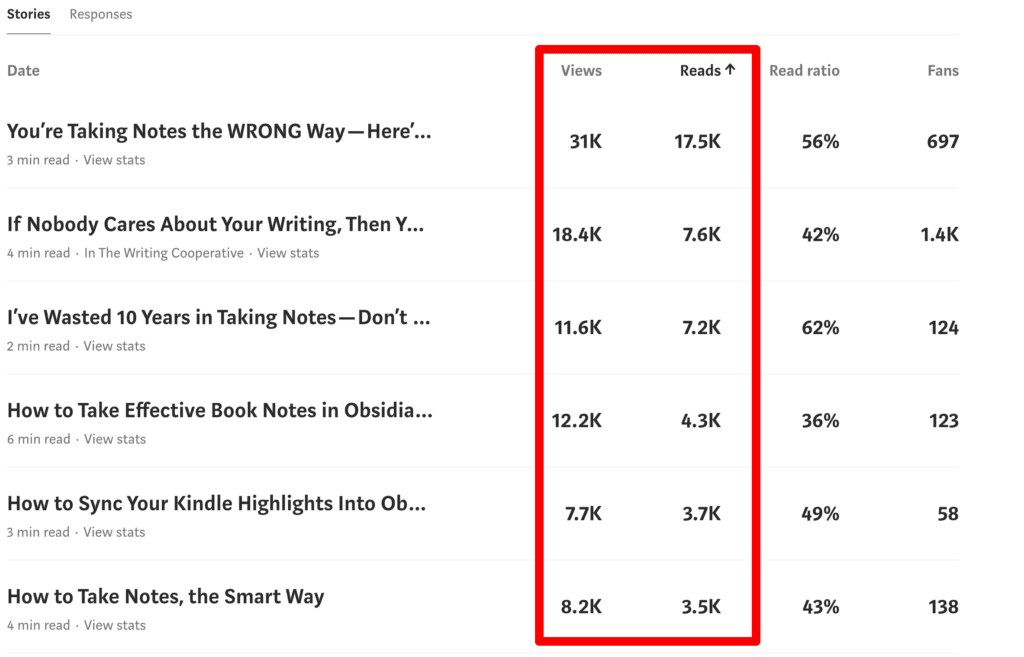Expert Facts To Selecting A Pathologist Email List
Wiki Article
What Do I Need To Consider When Buying A Hematologist Email List?
To ensure that your hematologist's list is relevant, effective and precise, as well as compliant with the law, you have to pay attention to several key factors. The most important considerations are: 1. Quality of data and accuracy
Source of Data: Confirm that the provider of the email list is using reliable sources. These include medical databases and professional directories. Hematologists may also opt in to receive email notifications if they've confirmed their consent. The accuracy with which the contacts were gathered will indicate how well the list is.
Verification and Updates: Ask your provider about its procedure for verifying and updating data. Emails should be validated to get rid of invalid or inactive addresses. Updates are required to keep the database up-to-date as healthcare professionals move their jobs or work at different institutions.
Segmentation and Specialization - Make sure your list is targeted towards the field of hematology. You can also segment it further, such as subspecialty, location or. Segmented lists let you better target your efforts.
2. Legal Regulations
Data Privacy Laws – Ensure that you are in compliance with laws governing data protection in force such as the General Data Protection Regulations (GDPR) for Europe as well as the California Consumer Privacy Acts (CCPA) for the U.S. and other applicable laws. This means that email addresses can only be obtained when consent is granted.
CANSPAM Act – In the U.S.a, check that your email address is in compliance with the CANSPAM Act. It governs electronic commercial communications. Non-compliance with the CAN-SPAM Act can lead to penalties. Furthermore, your email may be marked as spam.
Opt-in Consent. The email list should be composed of hematologists, who have explicitly agreed to receive third-party emails. Unsolicited emailing to people who haven't signed up can cause poor engagement and could lead to legal issues.
3. Provider Reputation
Reputable Provider: Check the reputation of the provider on the list. To confirm that the organization is dependable, check for reviews, testimonials as well as case studies. A reputable company with an established track record will be more likely to deliver quality, reliable data.
Transparency. Choose a company that offers transparency regarding where and how the data was collected. Any provider that is vague or unclear about the methods they use to collect data are not recommended.
Customer Support: Selecting a business with a solid customer service is vital. There may be a need for assistance with technical issues, list customisation, or concerns regarding compliance. A strong customer support can make a big difference.
4. Cost and Return On Investment (ROI).
Pricing Model: Take into account the pricing model, whether it's pay-per-contact, flat-fee, or subscription-based. Make sure the price aligns with the potential ROI. Balance the list quality and quantity with your budget.
Refund or Replace Policy: A reputable business will provide a replacement or refund policy in the event of an email address that is invalid. Clarify the terms of this policy prior to making the purchase.
Value for money: Check the attributes of the lists (such as segmentation and the accuracy of the data provided by the service provider) with the price. The cheapest list does not guarantee the best value in terms of value if it is based on low quality data.
5. Ownership of Data and Usage
Single Use Vs. Multiple Use: Learn the terms of usage for email lists. Some providers only allow the use of the list for one specific campaign whereas others provide unlimited usage rights.
Exclusive vs. Shared Lists: Decide whether the email list is a private list for your company or is shared with buyers. Exclusive lists typically offer more engagement since the contacts will be less likely to receive marketing emails from many sources.
6. Integration and Data Format
Its compatibility: The email list must be compatible with CRM or email tools. The list must be available in common formats such as CSV or Excel for easy integration.
The list should be easy to control and filter. Lists that are hard to manage and segment could hinder the effectiveness of campaigns.
7. Ethical Aspects
Relevance for Hematologists Be sure that the email you send out is appropriate for doctors. Sending them material that doesn't correspond to their expertise could result in low engagement. This could affect the reputation of your business.
Avoiding Spam Methods: Try not to flood the recipients with too many messages. Sending spam complaints could damage your reputation if it is sent too many emails.
Conclusion
The purchasing of a hematologist's list is an effective method for focusing your marketing. However, it must be handled with care. You should focus on the quality of data and privacy laws, and reputation of the provider to get an accurate and useful list. Making sure you are focusing on ethical marketing, and segmentation will allow you to maximise your profits while maintaining your brand's image. Have a look at the pro hematologists email list for more recommendations.

What Aspects Should I Be Thinking About When Purchasing An Urgentcare Email List?
To determine whether an urgent care database for email is reliable as well as accurate, reliable and relevant for your marketing goals You must consider several aspects. The most important considerations are: 1. Quality of data and accuracy
Data source: Ensure that the provider is obtaining the data they need from reliable sources such as healthcare databases or medical associations. Avoid lists compiled using scraping and other methods that are not reliable as they may contain inaccurate or outdated data.
Verification Process: Confirm that the email list has been regularly verified and up-to-date. A trusted provider will have strict verification procedures to remove old, invalid, and duplicate email addresses. This will ensure high deliverability and decreases bounce rate.
Segmentation and Targeting The list should provide different options for segmentation, including the location (city or region, state or city), dimensions of the urgent care center and the specialties they offer (e.g., pediatrics, diagnostics) and the decisions-making roles (e.g. doctors and practice owners). The lists you develop can improve the outreach of your organization by increasing the number of people who are engaged.
2. Legal Regulations
Data Privacy Laws – Ensure that your list is in compliance with the relevant law on data protection. These include the General Data Protection Regulations (GDPR) for Europe, California Consumer Privacy Acts (CCPA) for the U.S. and other local laws. This means that any email addresses collected should be done with the proper consent and collected in a legal way.
CAN-SPAM Act Compliant: Marketing email campaigns in the U.S. are required to conform to the CANSPAM Act. You must include your email address along with a clear "opt-out" option. Infractions to the law could result in penalties or damage to your business's reputation.
Opt-In Consent - Make sure that the recipients of the email addresses on your list have accepted receiving marketing emails from third parties. This minimizes spam complaints and legal issues.
3. Provider Reputation
Select a reputable service: A track record of providing a high-quality and reliable email lists is a reliable indication. You can determine a company's credibility by reading reviews, testimonials, and case studies.
Transparency - The service provider should be open about the data's source and the date when it was last changed. If the provider can't provide the exact details of how they collect data, this could indicate the data they've collected is low quality.
Customer Support: Having a strong customer service is crucial if you need assistance with the technical aspects of your list, its modification, or compliance. A responsive provider can ensure that you receive the best benefit from your email list.
4. Cost as well as Return on Investment (ROI).
Pricing models. Email list suppliers generally offer a variety of pricing options, including flat costs or pay per contact. Pricing models must be evaluated against your marketing budget, as well as expectations of ROI. Make sure you balance the price of the list with the accuracy and quality of the data.
Refund or replacement policy. Most reliable providers offer refunds or replacement policies if the majority of emails are invalid or non-deliverable. Make sure you understand the conditions and terms of the policy before you make a purchase.
Value for money: Instead of selecting the most affordable option, focus on lists that offer value through precise data and a thorough segmentation. By investing in lists of top quality will boost engagement and yield a higher return on investment.
5. Use and Ownership of Data
Lists that can be used multiple times, or for only one campaign: Be certain that the list is meant to be used just once or several times. Lists that can be used for multiple purposes offer greater value, particularly when you intend to conduct ongoing outreach campaigns.
Exclusive vs. Lists shared: Determine whether your list is exclusive or shared. Shared lists may result in list fatigue as the recipients could receive marketing messages from multiple companies, which can reduce the rate of engagement.
6. Data Integration and Format
Compatibility with CRM: Check whether the email list are sent in an email format that is compatible with either your Customer Relationship Manager (CRM) or email platform. This could be CSV or Excel. This will ensure a smooth integration, and allow you to launch your campaign swiftly.
User-friendliness: Your email list must be simple to maintain and segment on the criteria you have set. A well-organized email list makes targeting and personalization easier.
7. Ethical Considerations
Relevance of Content: Doctors who work in urgent care are often busy, therefore your communication should be timely and beneficial. Your messaging should be tailored to their specific needs. This could be medical equipment, technology for healthcare, or supplies that are aligned with urgent healthcare operations. Unrelated content could harm your brand and reduce engagement.
Avoid spam: Limit the frequency of your emails. Over-emailing or sending unsolicited messages could result in spam complaints and reduce your reputation as a sender.
Conclusion
When purchasing an urgent care list of emails, concentrate on accuracy of the data as well as legal compliance. the credibility of the service. Make sure the list is divided. The information should be kept up-to-date and must meet all privacy laws. Making sure that you send relevant content to a targeted and high-quality lists will increase engagement and allow you to achieve an ROI that is positive. Have a look at the pro urgent care email list for website advice.
